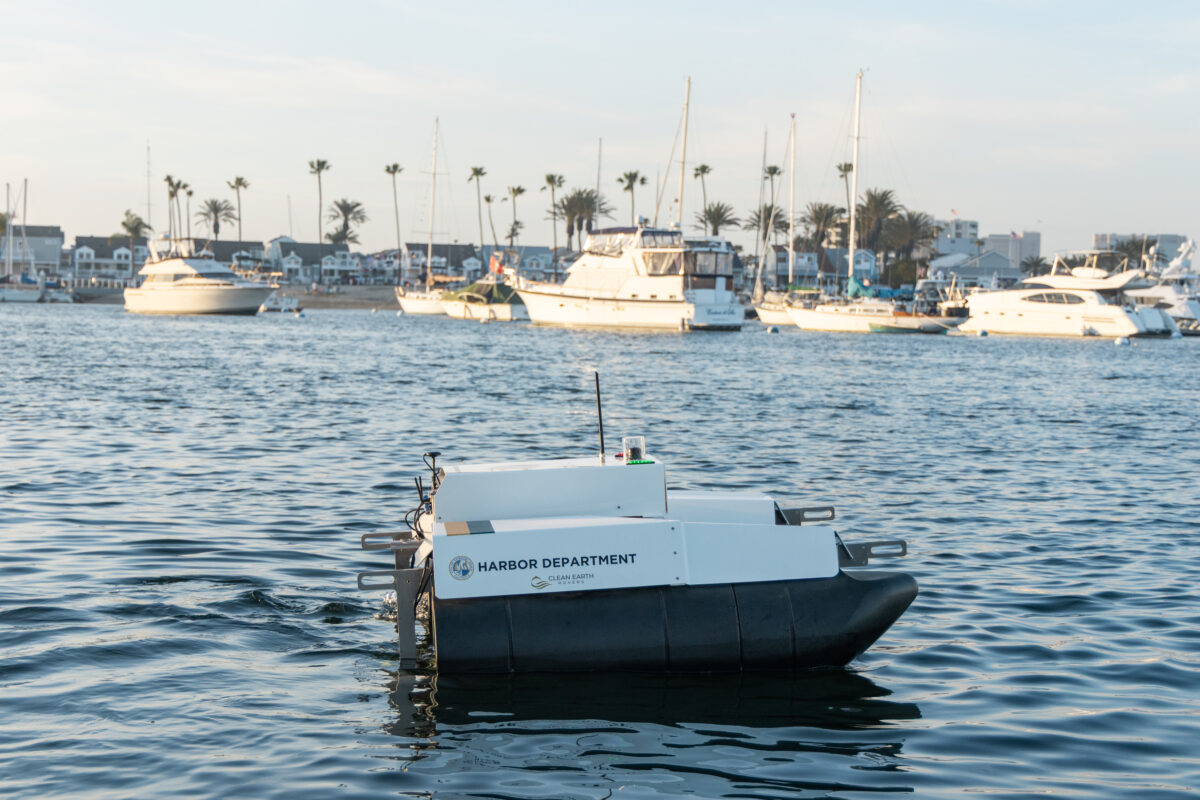
As a youngster, Michael Arens would go on family vacations in Florida, where he saw the “red tides” and fish kills that would close local beaches, causing disappointment because the native of St. Louis wanted to swim in the ocean.
During a high school speech class, he heard a classmate give a lecture on ocean pollution.
“That had me on the edge of my seat the whole time, and I spent the entire summer trying to figure out how to fix it,” Arens recalled. “I left school really excited. I’ve always been passionate about the ocean.”
That passion led him to co-found Clean Earth Rovers in 2019 when he was still a business student at Xavier University in Cincinnati. Since then, he moved the company to Costa Mesa and introduced The Rover, which is a version of a Roomba vacuum but for water areas like harbors and bays.
Thus far, he’s raised about $350,000, including a small investment from RevHub, the Orange County accelerator; that round last year valued the company around $3 million. Last year, Arens and co-founder David Constantine, were named to an annual Forbes 30 Under 30 list for the Energy/Sustainability sector.
It’s helping municipalities like Newport Beach, Los Angeles and Huntington Beach clean up their harbors. It’s exploring options in Florida.
“In Huntington Beach, we removed seven and a half tons of trash in one year of operation,” he said.
Entrepreneurial Family
Arens come from a family of entrepreneurs as his father and grandfather ran a commercial glass installation company in the St. Louis area.
“That gave me an insight what was possible through entrepreneurship,” he said.
When Arens would talk to owners of businesses who relied on waterways, they said they’d lose customers if the waterways near their docks were dirty. However, traditional methods to clean waterways are often lacking, Arens said.
“It’s all being done by hand,” he said. “The way that most cities clean is using pool skimmers over the side of a boat or off a dock.”
He and a team of engineers developed The Rover, which is shaped like a small catamaran with a net between the two hulls. The device also has a flashing light on its top to increase its visibility, and it’s programmed to avoid passing boats. The user can program the device to clean desired areas. Besides collecting up to 100 pounds of debris per bag, the Rover can also be adapted to collect two gallons of oil a minute, gather aquatic vegetation up to five feet below the surface or spray herbicide on algae and invasive species.
The company, which now employs six, has built 15 such Rovers. The company originally was on pace for a $500,00 annual run rate until they decided to focus on recurring revenue streams instead of one-time purchases; Arens said the company is approaching a $300,000 annual revenue rate based on recurring revenue.
The company also offers two other products:
• A scalable smart buoy called The DataPod to report wirelessly diagnostic samples to the cloud every 30 minutes and send live-alerts about water quality concerns.
• DataHub is its online site to manage the Rover and water quality from the Smart Buoy.
Pollution in waterways incurs more than $2 billion in economic losses every year, according to the company’s website, which said there are more than 15,000 pollution events annually and $300 million in related medical expenses.
“Waterway pollution is one of the biggest issues we face as a society, and we are here to create solutions that solve the problem,” Arens said.
